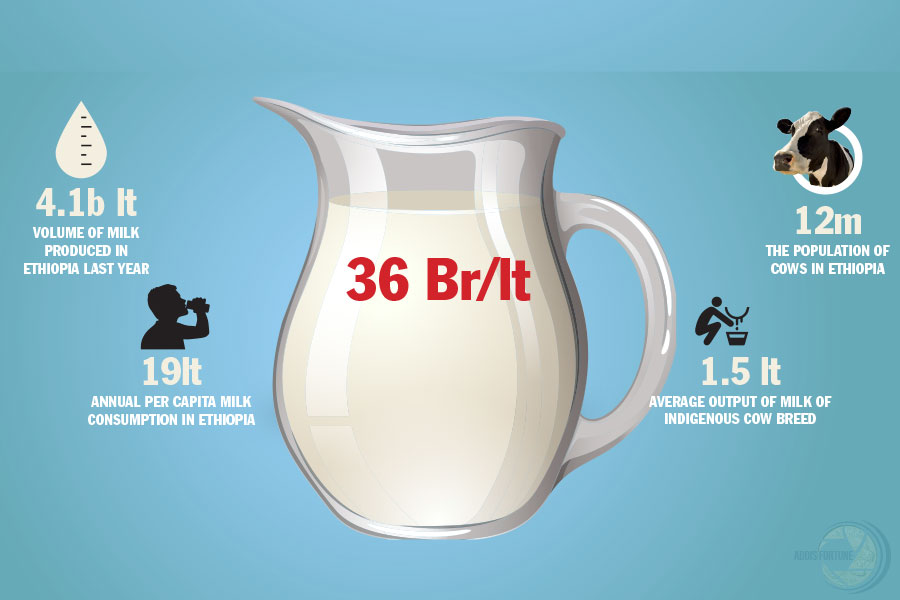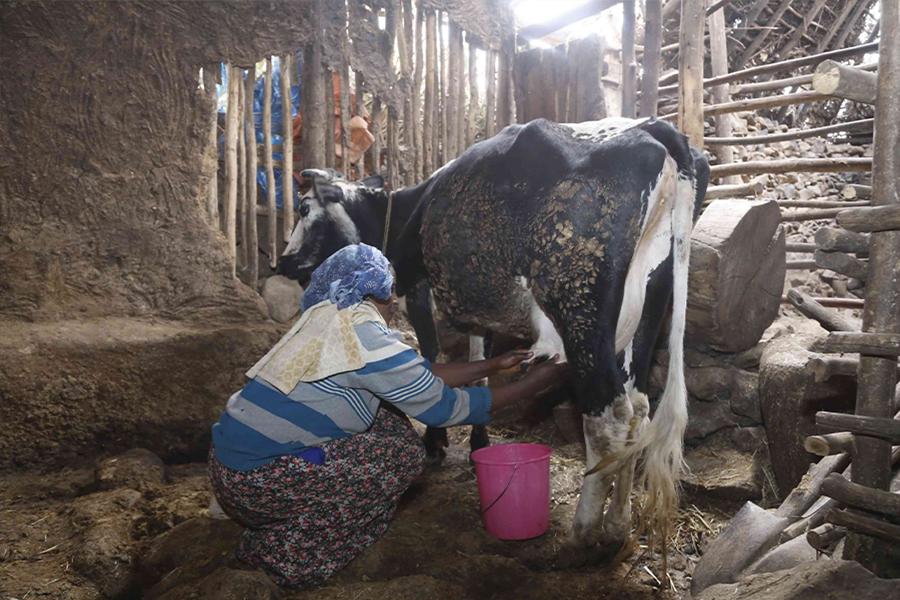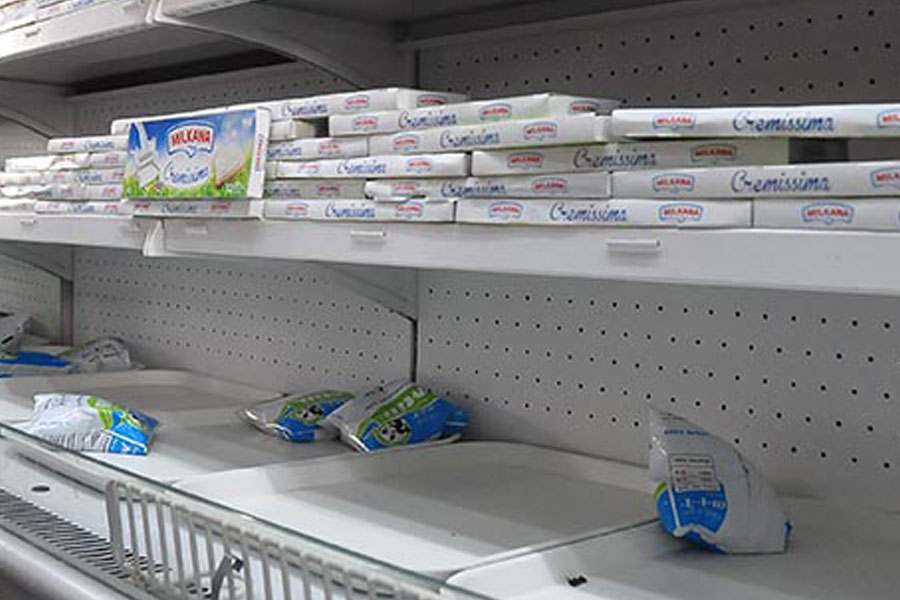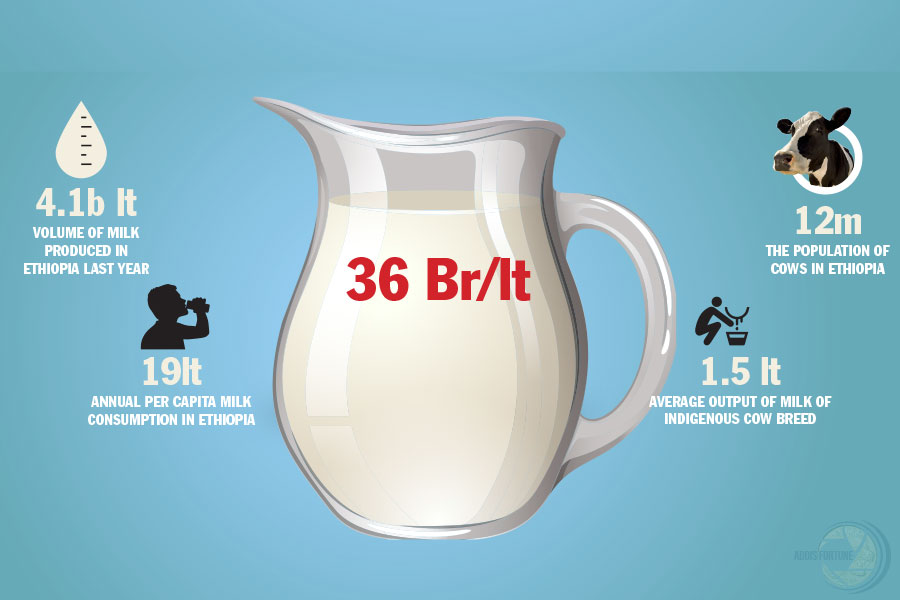
Fortune News | Jul 31,2021
Jun 12 , 2021
By Christian Tesfaye
There is something that most of us here in Ethiopia are used to but someone from a developed country would find strange. Retail is extremely atomised. Take my neighbourhood. In a radius of no more than 0.4Km, there are about seven pharmacies, three greengrocers, four bakeries, four or five clinics, about a dozen boutiques and even more kiosks.
They often sell the same goods and services. One clinic is no better than the other. The bread from one mom-and-pop bakery is no tastier than the other. Often, if I can not get a pasteurised milk at one kiosk, I am sure I would not find it at any of the over a dozen others. There is not even any meaningful price differentiation.
Why the waste of so much space? How come that one large and well-equipped drugstore, greengrocer, bakery, clinic, even a boutique or a supermarket does not serve a small neighbourhood such as mine?
It all comes to one thing: small shops are easier to run. Some bakeries are a side hustle, pharmacies are often a way for fresh medical graduates to get started, and kiosks offer flexibility in an environment where price setting and sourcing of goods is unpredictable.
Large stores – say a supermarket – are far more complicated. Unlike a kiosk, to get started with a supermarket, it is necessary to have a large starting capital to make bulk purchases and rent an ample space – no small risk to take in a country where credit is hard to come by unless there is collateral at hand. A supermarket also requires contracted suppliers and a relatively large warehouse facility that accommodates cold food storage (and with this, backup generators) and is safe, secure, organised and each good tracked meticulously.
While a kiosk would often have at most two people running it, a supermarket requires cashiers, stockers, a butcher, store manager, guards and accountants, in the least. It is a large and complex operation.
And yet, modern consolidated retail offers a range of advantages to the overall economy than atomised retailers ever will. For the consumer, the benefit is that a retailer could build on the economy of scale to bring down prices. It can also secure contract arrangements, which scattered and small retailers could never manage as they would be too unreliable and time-consuming to deal with. Large retailers make it possible for producers to scale up by ensuring that a certain size and standard of products would indeed be bought if they supply it.
The impact of contract agreements on the rest of the economy can not be understated. Brewers in Ethiopia have demonstrated this by supporting malt barley farmers to modernise, increase yields and grow. A recent study by the Ethiopian Institute of Agricultural Research found that contracted smallholders in Arsi and West Arsi zones of the Oromia Regional State secured 28pc more gross annual income than non-contracted malt barley farmers.
Modern retail is also better placed to mobilise to invest and innovate if there is competition. Resources could be geared towards e-commerce and long-distance delivery – which a kiosk owner would have neither the capital nor the incentive of economy of scale to realise. Large modern retailers are also more likely to get access to credit as they would have account books instead of many small retailers whose incomes are rarely properly reported. This means better domestic revenue mobilisation.
This will not be an easy task. The government would need to invest more in standardisation and enforcement of contracts, and access to credit needs to be improved. The transition from atomised retailers to consolidated ones would also need to be smoother and more inclusive to cushion the subsequent economic dislocation in the retail business. While large stores are not necessarily job killers – Walmart employs 1.5 million people in the United States – their impact could be whiplash for small-time retailers and informal traders. This is where long-term planning and flexible regulation are most needed.
PUBLISHED ON
Jun 12,2021 [ VOL
22 , NO
1102]


Fortune News | Jul 31,2021

Fortune News | May 18,2019

Fortune News | Nov 02,2025

Agenda | May 17,2025

Viewpoints | Mar 30,2019

Radar | Sep 27,2020

Sunday with Eden | Jun 07,2025

Fortune News | Apr 29,2023

Sunday with Eden | Aug 17,2019

Agenda | May 18,2019

Photo Gallery | 179990 Views | May 06,2019

Photo Gallery | 170185 Views | Apr 26,2019

Photo Gallery | 161185 Views | Oct 06,2021

My Opinion | 137238 Views | Aug 14,2021

Dec 22 , 2024 . By TIZITA SHEWAFERAW
Charged with transforming colossal state-owned enterprises into modern and competitiv...

Aug 18 , 2024 . By AKSAH ITALO
Although predictable Yonas Zerihun's job in the ride-hailing service is not immune to...

Jul 28 , 2024 . By TIZITA SHEWAFERAW
Unhabitual, perhaps too many, Samuel Gebreyohannes, 38, used to occasionally enjoy a couple of beers at breakfast. However, he recently swit...

Jul 13 , 2024 . By AKSAH ITALO
Investors who rely on tractors, trucks, and field vehicles for commuting, transporting commodities, and f...

Nov 1 , 2025
The National Bank of Ethiopia (NBE) issued a statement two weeks ago that appeared to...

Oct 25 , 2025
The regulatory machinery is on overdrive. In only two years, no fewer than 35 new pro...

Oct 18 , 2025
The political establishment, notably the ruling party and its top brass, has become p...

Oct 11 , 2025
Ladislas Farago, a roving Associated Press (AP) correspondent, arrived in Ethiopia in...

Nov 2 , 2025
The National Bank of Ethiopia (NBE) has scrapped the credit-growth ceiling that had s...

Nov 2 , 2025 . By SURAFEL MULUGETA
The burgeoning data mining industry is struggling with mounting concerns following th...

Nov 2 , 2025 . By YITBAREK GETACHEW
Berhan Bank has chosen a different route in its pursuit of a new headquarters, opting for a transitional building instea...

Nov 2 , 2025 . By BEZAWIT HULUAGER
Nib International Bank S.C. has found itself at the epicentre of a severe governance...